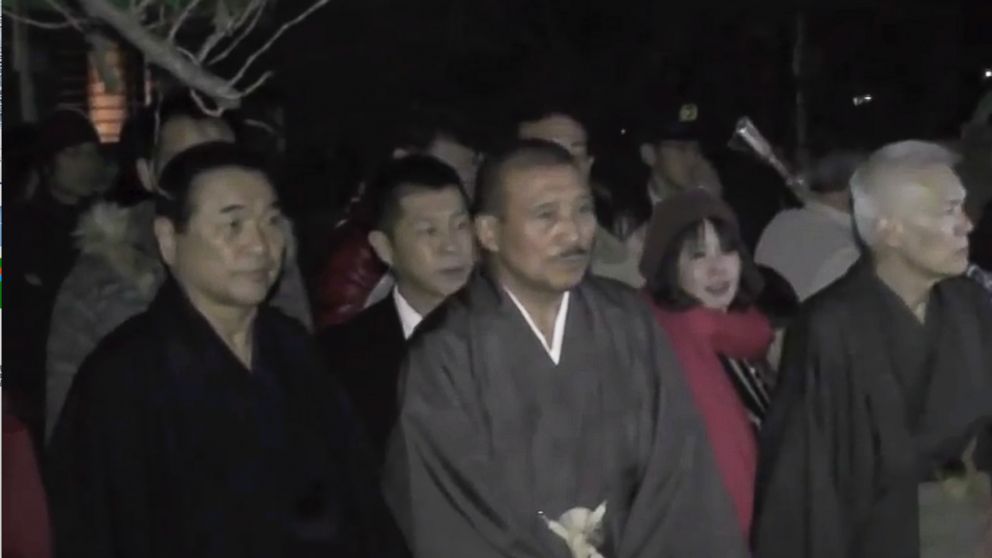Japanese Gangsters Attempt Image Makeover
New website and corporate song latest in long list of PR stunts.

Apr. 2, 2014— -- Japan’s largest organized crime group is attempting to soften its image with a new website and theme song.
The Yamaguchi-gumi are known for their colorful, full-body tattoos and severed pinkies, but their website is the antithesis of their hardline criminal image.
In its latest public media push, the group -- which is the largest of Japan’s Yakuza syndicates -- has created a minimalist-looking website wielding the tagline "Banish Drugs and Purify the Nation League," in an attempt to reinforce its purported anti-drug message.
The website, populated with images of cherry blossoms, YouTube clips and details of the gang’s recent community efforts in the wake of the 2011 Tsunami and 1995 Kobe earthquake, is just the latest in a series of publicity stunts the group has run for years, said David E. Kaplan, author of the book “Yakuza, Japan's Criminal Underworld.”
Kaplan compares the Yakuza with the Masons, the mafia and Klu Klux Klan -- all rolled into one organization. The syndicate operates in an "above-ground underworld," but with much greater acceptance in Japan than other crime groups enjoy in the Unites States, he said.
"They have a certain accepted role in Japanese society. No one’s shocked in Japan that they have a public face," Kaplan said. “They have their own magazine, initiation rituals, their own songs."
One of those songs is played out on a YouTube clip showing members of the Yamaguchi-gumi making a pilgrimmage to a shrine, while a male singer croons about the "Ninkyo" spirit – a masculine ideal fighting injustice and aiding the weak.
"Nothing but Ninkyo, that is the man's way of life," the man sings. "The way of duty and compassion, bearing the ordeal for our dream."
Another video on the website shows members cheerfully pounding hot sticky rice at a New Year’s festival.
While the Yakuza are heavily involved in illegal operations -- ranging from prostitution and murder to white-collar crime -- unlike other crime groups around the world, the Yakuza hold a unique mystique in Japanese pop culture, often appearing in manga cartoons and fanzines.
The Yamaguchi-gumi have also produced their own and magazines and websites "on and off for years," Kaplan said.
One such magazine, launched last year, is filled with Haiku poems and diary entries of senior members’ fishing trips, the Guardian reported.
In recent years, official numbers of Yakuza members have dropped significantly, mainly as a result of a police crackdown on gang activities. Last month, the National Police Agency released estimates that membership has fallen from over 80,000 members between 1992-2010 to below 60,000.
The Yamaguchi-gumi remains the largest group with over 25,600 members, while its rival the Sumiyoshi-kai has roughly 9,500 members, authorities said.
But despite these flagging official figures, Kaplan said the group are still running strong, becoming more “sophisticated and corporate” and expanding outside of the scope of typical crime syndicate activities into real estate and multinational corporations.




